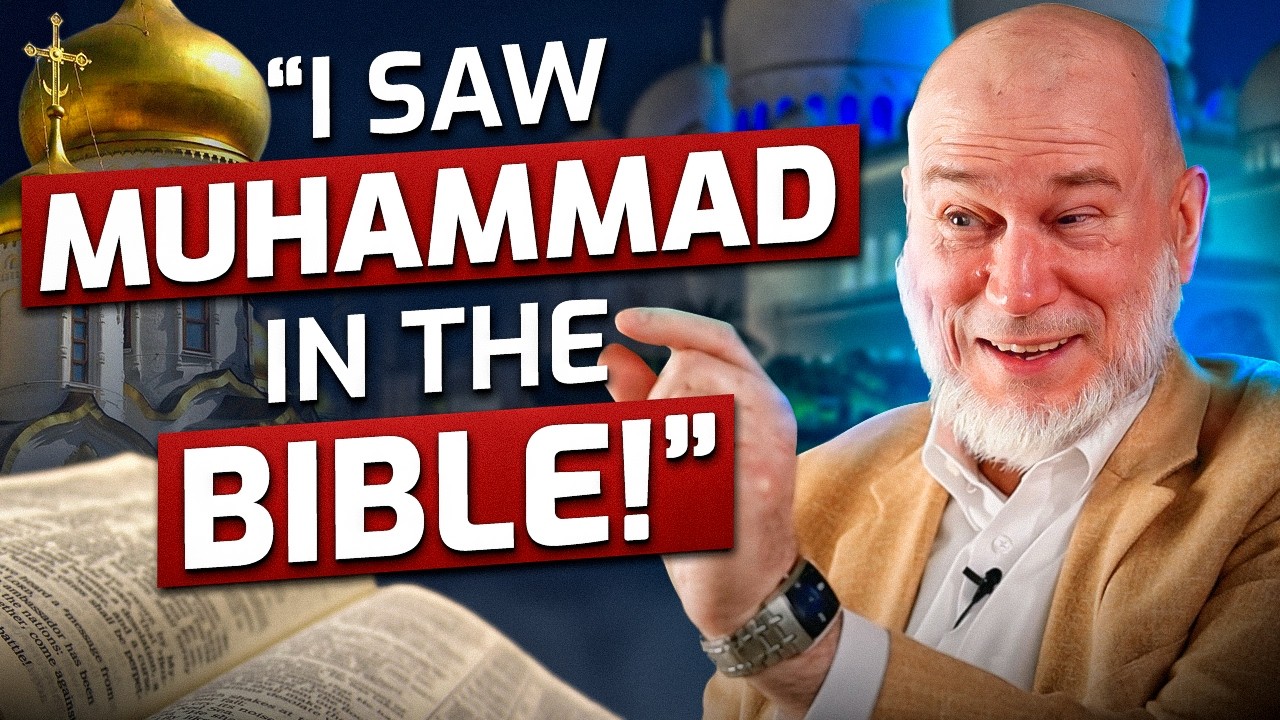Why Would a Christian Preacher Convert to Islam?
In my ongoing mission to share and defend the Christian faith, I recently came across a rather puzzling story: a Christian preacher who decided to convert to Islam.
I mentioned recently that Islam is like a “car wreck”. Another way you can think about Islam is like a “treadmill”. As to why? I’ll get back to this later.
A couple of days back, I saw an image in YouTube.
 This preacher claimed that his decision came after a careful study of the Bible, leading him to believe that the prophet Muhammad is referenced within it.
This preacher claimed that his decision came after a careful study of the Bible, leading him to believe that the prophet Muhammad is referenced within it.
At first, I ignored the video. But after seeing the video repeatedly, I decided it was time to dive into these claims. This gives me another opportunity to refute them with Biblical truth.
The Encounter: “Muhammad in the Bible?”
The idea that Muhammad is mentioned in the Bible isn’t new. It’s a claim that’s been promoted in pamphlets and teachings for decades. Figures like Ahmed Deedat and Zakir Naik have circulated materials for the past 30 years asserting that Muhammad’s name, attributes, or mission are predicted in the Old and New Testament.
One common reference is Surah 7:157, which claims that Muhammad is “written in the Torah and the Gospel.” From this, some believe that Islamic prophecy and Muhammad himself are hidden within the Biblical text.
“To-day this mercy is for those who follow the ummi Prophet, whom they find mentioned in the Torah and the Gospel with them. He enjoins upon them what is good and forbids them what is evil.” – Surah 7:157
I often find myself questioning: How can someone, deeply rooted in Christianity, believe this? I have read the Bible extensively and taught from its pages for years. The message of salvation in Christ is clear throughout, yet claims about Muhammad seem to appear out of nowhere.
 Searching for “Proof” of Muhammad in the Old Testament
Searching for “Proof” of Muhammad in the Old Testament
One of the arguments presented by the preacher is that Muhammad is referenced in the Old Testament. He suggested that the Bible contains about 50 to 100 verses describing this “prophet”.
I would love for him to show me those 50 to 100 verses.
For example, some Muslims interpret Deuteronomy 33:2, which describes God coming with “ten thousand saints,” as a reference to Muhammad leading his followers. However, a deeper reading shows that this verse likely speaks about Moses and the Israelite journey led by God Himself.
“And he said, The Lord came from Sinai, and rose up from Seir unto them; he shined forth from mount Paran, and he came with ten thousands of saints: from his right hand went a fiery law for them.” – Deuteronomy 33:2
As I read these claims, I am reminded of how important it is to read the Scripture in its full context. Cherry-picking verses or interpreting them through another religious lens can often distort the original message.
The Bible consistently points to Jesus Christ as the Messiah, not to another prophet coming later.
Misinterpretation of Prophetic Passages
The preacher also argued that Haggai 2:7 speaks of the “Ahmed of all Nations”.
“And I will shake all nations, and the desire of all nations shall come: and I will fill this house with glory, saith the Lord of hosts.” – Haggai 2:7
This approach reminded me of the importance of studying Biblical prophecy with care. Passages that foretell the Messiah, for instance, explicitly refer to His lineage, mission, and characteristics—none of which match those of Muhammad. The Bible’s prophecies consistently reveal Jesus as the fulfillment of God’s promises.
 Why the Bible’s Message Stands Apart
Why the Bible’s Message Stands Apart
Reflecting on this encounter, I found myself saddened that this preacher seemed to miss the core message of the Bible. The Scriptures from Genesis to Revelation reveal a consistent story of God’s love, salvation, and redemption through Jesus Christ.
In every prophecy and narrative, Jesus is the focal point, fulfilling every requirement, prophecy, and hope for humanity’s salvation. By shifting focus to another figure, the message of salvation through Jesus is diluted.
The Bible was written over centuries by various authors, yet it maintains a unified message about Christ. For someone to reinterpret passages to fit a different narrative feels like a loss of this overarching truth. And so, I continue to encourage fellow Christians to read the Bible deeply and seek its truth.
“All Scripture is God-breathed and is useful for teaching, rebuking, correcting and training in righteousness.” – 2 Timothy 3:16
Why These Debates Matter
In a world with diverse beliefs and interpretations, it’s vital to stay grounded in our faith, ready to answer questions, and guided by the truth of Scripture. By engaging in these discussions, we can deepen our understanding of faith and communicate its truths effectively.
While I respect everyone’s journey, I firmly believe what Jesus said.
“I am the way, the truth, and the life: no man cometh unto the Father, but by me.” – John 14:6
Through His teachings, sacrifice, and resurrection, Jesus fulfilled the prophecies and promises that came long before His arrival on earth.
If you’re interested in exploring more about the unique message of the Bible and the truth about Jesus Christ, check out this article.
And by the way, as to why I said Islam is like a “treadmill”? It’s because it will have you running and running, but you’ll end up running nowhere. God bless.
WATCH THE VIDEO
























Recent Comments